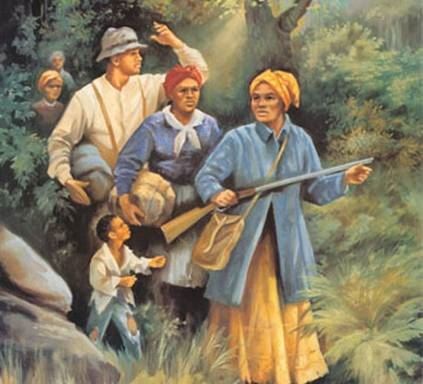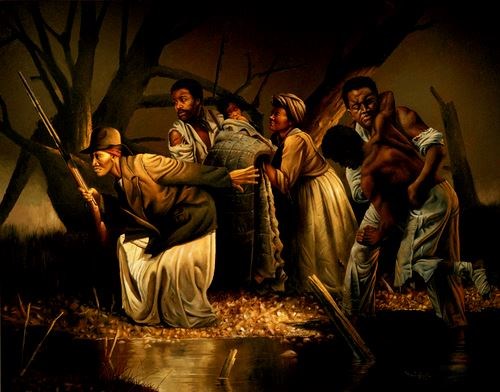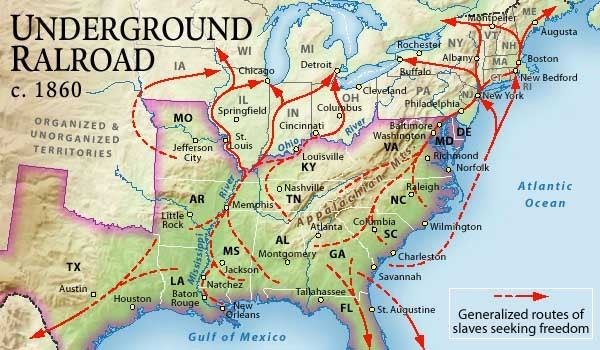“Heroes are made by the paths they choose, not the powers they are graced with” (Brodi Ashton). Many people are capable of achieving great things but choose not to use their abilities to accomplish something beneficial. A person qualified of earning the title of a hero is someone who uses his strengths and abilities to his maximum potential in order to make a difference in the world. People admire heroes as they “remain on a path ultimately towards selflessness and good” (Hogue). Heroism can be portrayed through actions ranging from saving someone’s life or standing up to a bully at school. Whether the person has impacted multiple lives, or just one, they can be considered a hero. Many heroes share similar fundamental traits such as selflessness, bravery, and intelligence, in which they use to help a cause they are passionate about. These people stand out as role models and represent the highest ideals of society as they use their talents and selfless character to benefit others.
 Tubman became a conductor of the Underground Railroad and made multiple expeditions back to the South.https://www.thetruthaboutguns.com/2013/06/daniel-zimmerman/harriet-tubman-abolitionist-bad-ass/One person who used her intelligence and selflessness to benefit society against all odds was Harriet Tubman, an abolitionist who fought for the equality of slaves. Tubman was born into slavery in 1820 in Dorchester, Maryland, and began working at the age of five. At the age of fifteen, a weight, aimed at a different slave attempting to escape, struck Tubman’s head, leaving her in a coma. She suffered from a fractured skull, a concussion, and narcoleptic symptoms, and endured the extreme pain that lasted for the rest of her life. Later, after undergoing these harmful conditions, Tubman finally escaped slavery in 1849 and decided to help other slaves escape as well. To achieve this, she became a conductor of the Underground Railroad: a system of routes, private homes, and other hiding places that helped fugitive slaves escape the South and flee into Northern states and Canada, where slavery was outlawed. She made 19 expeditions to the South and freed about 300 slaves. Along with being a conductor of the Underground Railroad, Tubman also worked for the Union army during the Civil War as a nurse and teacher. Even with the high risks involved, Tubman chose to use her altruism and intelligence to successfully aid enslaved African Americans to freedom. Because of her selflessness in risking her life to benefit others and ingenuity in her ability to outsmart opponents and obstacles, Tubman embodies the true qualities of a hero.
Tubman became a conductor of the Underground Railroad and made multiple expeditions back to the South.https://www.thetruthaboutguns.com/2013/06/daniel-zimmerman/harriet-tubman-abolitionist-bad-ass/One person who used her intelligence and selflessness to benefit society against all odds was Harriet Tubman, an abolitionist who fought for the equality of slaves. Tubman was born into slavery in 1820 in Dorchester, Maryland, and began working at the age of five. At the age of fifteen, a weight, aimed at a different slave attempting to escape, struck Tubman’s head, leaving her in a coma. She suffered from a fractured skull, a concussion, and narcoleptic symptoms, and endured the extreme pain that lasted for the rest of her life. Later, after undergoing these harmful conditions, Tubman finally escaped slavery in 1849 and decided to help other slaves escape as well. To achieve this, she became a conductor of the Underground Railroad: a system of routes, private homes, and other hiding places that helped fugitive slaves escape the South and flee into Northern states and Canada, where slavery was outlawed. She made 19 expeditions to the South and freed about 300 slaves. Along with being a conductor of the Underground Railroad, Tubman also worked for the Union army during the Civil War as a nurse and teacher. Even with the high risks involved, Tubman chose to use her altruism and intelligence to successfully aid enslaved African Americans to freedom. Because of her selflessness in risking her life to benefit others and ingenuity in her ability to outsmart opponents and obstacles, Tubman embodies the true qualities of a hero.
 After escaping slavery, Tubman dedicated her life to helping other slaves escape as well.https://www.collinsart.org/art-prints/harriet-tubmans-underground-railroad-2Tubman is admired as a hero because she displays a selfless character by risking her own freedom in order to secure the freedom of other slaves. In the article “Night Vision,” the author includes Tubman’s initial thoughts about wanting to help others, the moment she gained freedom: “I had crossed the line of which I had so long been dreaming. I was free, but there was no one to welcome me to the land of freedom. I was a stranger in a strange land, and my home after all was down in the old cabin quarter, with the old folks, and my brothers and sisters. But to this solemn resolution I came; I was free, and they should be free also; I would make a home for them in the North and the Lord helping me, I would bring them all there” (Night Vision - Harriet Tubman's Chronic Illness). Managing to reach freedom was a great achievement that Tubman felt proud of, as it required her to overcome great risks and obstacles. After experiencing captivity as a former slave, she felt amazing to finally be free. However, she realized that all African-American slaves deserved to be free, not only her. Her decision to constantly risk her life showed Tubman’s selflessness as she was doing it for the sake of helping others reach freedom. In a letter addressed to Tubman, Frederick Douglass, a male abolitionist, writes: “I have had the applause of the crowd and the satisfaction that comes of being approved by the multitude, while the most that you have done has been witnessed by a few trembling, scarred, and foot-sore bondmen and women, whom you have led out of the house of bondage, and whose heartfelt ‘God bless you’ has been your only reward” (Douglass). Douglass mentions how Tubman does not fight for justice and does not take action for the purpose of the public’s love or acceptance. She risks her life to help others escape slavery because she wants to improve the lives of others. Her selflessness allowed her to build up the courage and bravery to return to the South to free slaves even though it jeopardized her life and she received nothing in return. Tubman’s altruistic and selfless character through her willingness to help others attain freedom while risking her own justifies her heroism.
After escaping slavery, Tubman dedicated her life to helping other slaves escape as well.https://www.collinsart.org/art-prints/harriet-tubmans-underground-railroad-2Tubman is admired as a hero because she displays a selfless character by risking her own freedom in order to secure the freedom of other slaves. In the article “Night Vision,” the author includes Tubman’s initial thoughts about wanting to help others, the moment she gained freedom: “I had crossed the line of which I had so long been dreaming. I was free, but there was no one to welcome me to the land of freedom. I was a stranger in a strange land, and my home after all was down in the old cabin quarter, with the old folks, and my brothers and sisters. But to this solemn resolution I came; I was free, and they should be free also; I would make a home for them in the North and the Lord helping me, I would bring them all there” (Night Vision - Harriet Tubman's Chronic Illness). Managing to reach freedom was a great achievement that Tubman felt proud of, as it required her to overcome great risks and obstacles. After experiencing captivity as a former slave, she felt amazing to finally be free. However, she realized that all African-American slaves deserved to be free, not only her. Her decision to constantly risk her life showed Tubman’s selflessness as she was doing it for the sake of helping others reach freedom. In a letter addressed to Tubman, Frederick Douglass, a male abolitionist, writes: “I have had the applause of the crowd and the satisfaction that comes of being approved by the multitude, while the most that you have done has been witnessed by a few trembling, scarred, and foot-sore bondmen and women, whom you have led out of the house of bondage, and whose heartfelt ‘God bless you’ has been your only reward” (Douglass). Douglass mentions how Tubman does not fight for justice and does not take action for the purpose of the public’s love or acceptance. She risks her life to help others escape slavery because she wants to improve the lives of others. Her selflessness allowed her to build up the courage and bravery to return to the South to free slaves even though it jeopardized her life and she received nothing in return. Tubman’s altruistic and selfless character through her willingness to help others attain freedom while risking her own justifies her heroism.
 These were the general routes of the Underground Railroad. Harriet Tubman would switch her routes and take different trains in order to "confuse slave hunters".https://www.harriet-tubman.org/underground-railroad/Tubman portrays heroism as she utilizes her ingenuity in order to be successful in her involvement as an abolitionist. The article “Harriet Tubman,” shows the many strategies Tubman used that helped her be successful as a conductor in the Underground Railroad: “Tubman employed many tactics to keep her groups moving toward freedom--she drugged crying babies with paregoric, an opium derivative; boarded southbound trains to confuse slave hunters; assumed various disguises; led the weary and frightened fugitives in singing spirituals; and threatened to kill escapees who tried to go back by pulling out her revolver and shouting at them, ‘move or die!’” (“Harriet Tubman." Contemporary Black Biography, vol. 135). Due to the high risks involved, Tubman was cleverly inventive in finding different ways she could “safely” assist slaves to freedom, depending on various situations. She was resourceful with her surroundings by using strategies to quiet crying babies, confuse adversaries, and communicate with other slaves. Like a hero, she used her strengths and abilities to her maximum potential when she utilized her ingenuity to not only help people champion freedom but to do it successfully. Tubman also used other strategies, outside the Underground Railroad, that allowed her to help in the abolition of slavery: “When the Civil War broke out, she became a spy, penetrating Confederate lines as a seemingly harmless old woman and gathering and carrying information to the Union side” ("Harriet Tubman." Contemporary Black Biography, vol. 9). During the civil war, the Union was fighting against the Confederates in order to end slavery. Tubman, being clever and disguising herself, was successful in gathering and passing down information that was helpful to the Union. Because of her cleverness and help, the Union ended up winning the Civil War which resulted in the abolition of slavery. Tubman, again, used her ingenuity in her efforts to contribute to justice and equality for slaves. By exploring different ways of helping slaves with the resources she obtained, she proved that she was able to use her strengths and abilities to improve the life of others. Tubman’s ingenious character caused her success in advancing the lives of slaves and bringing forth equality, and she is, thus, widely recognized as a hero.
These were the general routes of the Underground Railroad. Harriet Tubman would switch her routes and take different trains in order to "confuse slave hunters".https://www.harriet-tubman.org/underground-railroad/Tubman portrays heroism as she utilizes her ingenuity in order to be successful in her involvement as an abolitionist. The article “Harriet Tubman,” shows the many strategies Tubman used that helped her be successful as a conductor in the Underground Railroad: “Tubman employed many tactics to keep her groups moving toward freedom--she drugged crying babies with paregoric, an opium derivative; boarded southbound trains to confuse slave hunters; assumed various disguises; led the weary and frightened fugitives in singing spirituals; and threatened to kill escapees who tried to go back by pulling out her revolver and shouting at them, ‘move or die!’” (“Harriet Tubman." Contemporary Black Biography, vol. 135). Due to the high risks involved, Tubman was cleverly inventive in finding different ways she could “safely” assist slaves to freedom, depending on various situations. She was resourceful with her surroundings by using strategies to quiet crying babies, confuse adversaries, and communicate with other slaves. Like a hero, she used her strengths and abilities to her maximum potential when she utilized her ingenuity to not only help people champion freedom but to do it successfully. Tubman also used other strategies, outside the Underground Railroad, that allowed her to help in the abolition of slavery: “When the Civil War broke out, she became a spy, penetrating Confederate lines as a seemingly harmless old woman and gathering and carrying information to the Union side” ("Harriet Tubman." Contemporary Black Biography, vol. 9). During the civil war, the Union was fighting against the Confederates in order to end slavery. Tubman, being clever and disguising herself, was successful in gathering and passing down information that was helpful to the Union. Because of her cleverness and help, the Union ended up winning the Civil War which resulted in the abolition of slavery. Tubman, again, used her ingenuity in her efforts to contribute to justice and equality for slaves. By exploring different ways of helping slaves with the resources she obtained, she proved that she was able to use her strengths and abilities to improve the life of others. Tubman’s ingenious character caused her success in advancing the lives of slaves and bringing forth equality, and she is, thus, widely recognized as a hero.
Tubman is considered a hero and inspiration to others because of her demonstration of selflessness and ingenuity, which profoundly impacted hundreds of lives. Growing up, Tubman suffered greatly from the harsh conditions of slavery. After gathering the courage to escape, she put others’ needs before hers and repeatedly returned to the South to aid captive slaves on their journey to freedom. Tubman utilized her resources and was cleverly inventive in finding ways to pass families through the Underground Railroad with a complete success rate. Her characteristics and actions made her stand out as a significant abolitionist who greatly affected many lives. “She really represents the highest ideals of community, working for the common good, thinking about others beside yourself, risking everything for justice” (“Harriet Tubman." Contemporary Black Biography, vol. 135). Tubman serves as an inspiration to others, as well as myself, because of her selfless and brave actions purely working for “the common good”. She reflects the importance of being selfless in order to help towards something that one is passionate about, which, in her case, was the abolition of slavery. "People are fascinated with Harriet Tubman because they see her as an ordinary person who rose up against all odds to escape the savagery of slavery… The tourists who come here are also inspired by the courage of an individual to make a difference” (Simkins). Tubman shows that even those who are oppressed can find ways to contribute and help fight for what they believe in. Although I am not in the same situation that Tubman was in, she inspires me to go out of my way to help others who are less fortunate, such as the homeless. I’ve even baked delectables and had a bake sale in order to donate money to a homeless organization. She inspired me and still continues to inspire me to make a difference in the world, whether it impacts many people or just one. By looking up to Tubman as a role model, we can see the major impact she had on hundreds of lives and the amount of selflessness and courage it took to do it. Though she suffered a couple of setbacks, such as the long-lasting effects of her injury as a teen, she still managed to be successful in helping others and contributing to the abolition of slavery. She went out of her way to accomplish something for the benefit of others, not for the benefit of herself. With her ingenuity and selflessness, Tubman chose a path where she was able to improve and benefit the lives of others. Rather than protecting herself, she chose a path that jeopardized her existence. With her “powers”, she chose to take a heroic path “ultimately towards selflessness and good”, in which she triumphed.
Page created on 5/29/2018 7:31:47 AM
Last edited 5/30/2018 8:29:45 PM
